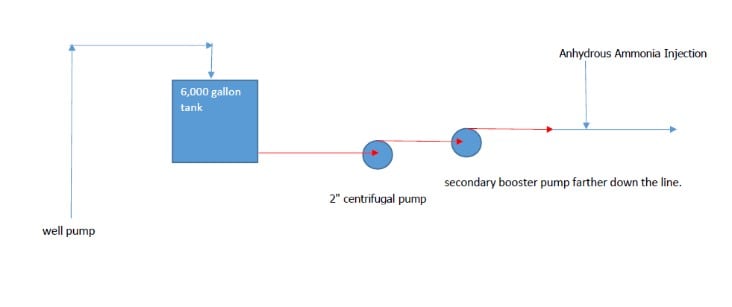Hello everyone, I'm new here so please pardon any errors I make for now.
The problem that we're having is scale buildup inside our water booster pumps as well as ending up in our end product;
Water gets pumped from a well into a 6000 gallon storage tank. From there it goes through a primary 2" centrifugal pump plus a secondary booster pump farther down the line. After that the water gets injected with Anhydrous Ammonia, goes through a cooler, than out to storage. The primary pump gets scale buildup and needs tore down and dipped in acid every few weeks, the secondary pump also needs this treatment about every month. Our end product also has evidence of scale/calcium and causes problems in our site tubes. Looking for any possible solutions!
Also, its important to note that we don't have problems with scale buildup in any other water processes we have that are pumped from the well. It seems that we only get scale buildup after the water runs through a centrifugal pump. Any ideas there?
Thanks in advance!
The problem that we're having is scale buildup inside our water booster pumps as well as ending up in our end product;
Water gets pumped from a well into a 6000 gallon storage tank. From there it goes through a primary 2" centrifugal pump plus a secondary booster pump farther down the line. After that the water gets injected with Anhydrous Ammonia, goes through a cooler, than out to storage. The primary pump gets scale buildup and needs tore down and dipped in acid every few weeks, the secondary pump also needs this treatment about every month. Our end product also has evidence of scale/calcium and causes problems in our site tubes. Looking for any possible solutions!
Also, its important to note that we don't have problems with scale buildup in any other water processes we have that are pumped from the well. It seems that we only get scale buildup after the water runs through a centrifugal pump. Any ideas there?
Thanks in advance!

